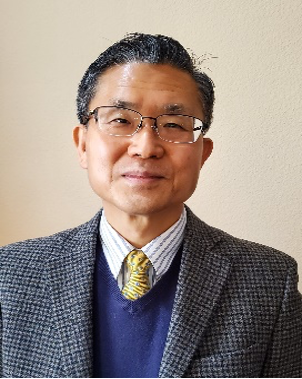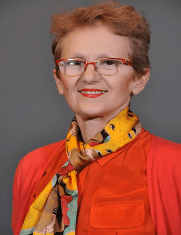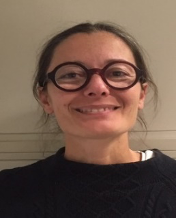Co-Chairs:Sang Suh, Radmila Juric
Abstract:
Design thinking has been around since 2008 but did not become the main development practice in software development and design. The specificity of software development, underpinned with computer science, with constantly changeable software and communication technologies, requires models of software abstractions and architectures in order to deploy them with suitable software technologies. Thus, it would require revisiting and more thinking on how exactly Empathize, Define, Ideate, Prototype and Test form design thinking would accommodate current practices of software development.
Data science has exhibited a sharp rise, which started less than a decade ago. However, it has not materialized as a discipline with its principles, roles, and paradigms. The fast rise of data science has become its curse. Apart from having numerous, elaborative, powerful algorithms which can process an enormous amount of data in no time, we do not find anything else in data science. We create predictive inference of variable accuracy, sometimes with biased models and results, and often unexplainable in terms of their computational values. We do not wish to undermine the data science ability to process an excessive amount of data and get “some meaning from it”, but we should be aware that predictive inference has limitation’s and, as statisticians used to say “could become dangerous instruments in wrong hands”. If we add to this the fact that predictive inference, with learning technologies, define what is known today as Artificial Intelligence, then the current practices of creating software solution based on AI must be investigated further. Could design thinking help in finding out where we stand with AI? Could it eliminate data science and predictive inference shortcomings.
In this workshop we look at the relationship between design thinking and data science form different views and debate possibilities of either merging or complementing them. It is difficult to predict where data science will take us in near future, because we started seeing resistance towards underpinning business decision on predictions only and would prefer help form logic inference. On the other side, how do we promote design thinking in this dynamic field of computing where everything is changeable, moveable, wireless, automated, human augmented with machine and vice versa (to mention just a few characteristics of modern computing).
Data science has exhibited a sharp rise, which started less than a decade ago. However, it has not materialized as a discipline with its principles, roles, and paradigms. The fast rise of data science has become its curse. Apart from having numerous, elaborative, powerful algorithms which can process an enormous amount of data in no time, we do not find anything else in data science. We create predictive inference of variable accuracy, sometimes with biased models and results, and often unexplainable in terms of their computational values. We do not wish to undermine the data science ability to process an excessive amount of data and get “some meaning from it”, but we should be aware that predictive inference has limitation’s and, as statisticians used to say “could become dangerous instruments in wrong hands”. If we add to this the fact that predictive inference, with learning technologies, define what is known today as Artificial Intelligence, then the current practices of creating software solution based on AI must be investigated further. Could design thinking help in finding out where we stand with AI? Could it eliminate data science and predictive inference shortcomings.
In this workshop we look at the relationship between design thinking and data science form different views and debate possibilities of either merging or complementing them. It is difficult to predict where data science will take us in near future, because we started seeing resistance towards underpinning business decision on predictions only and would prefer help form logic inference. On the other side, how do we promote design thinking in this dynamic field of computing where everything is changeable, moveable, wireless, automated, human augmented with machine and vice versa (to mention just a few characteristics of modern computing).
Objectives of the workshop:
Our aim is to revisit the design thinking process for intelligent systems development with AI, machine learning, and data science. Past experience and achievement among the panelists will be shared and synthesized to anticipate or suggest future directions to support intelligent systems design through sustainable and trustworthy AI.
Set-up:
Panelist will lead an open-discussion using presentation slides.

Dr. Sang Suh
Dr. Sang Suh is a Regents Professor of Texas A&M University System and a Professor of Computer Science at Texas A&M University – Commerce, USA. His primary research interests are in the areas of artificial intelligence, human computer interaction, data mining, knowledge and data engineering, machine reasoning and computing education. He has over 30 years of experience in scholarly and research activities developing practical industrial applications in those areas with special focus on convergence to transdisciplinary applications. Dr. Suh published 6 books and more than 120 research papers in those areas. He has been recognized for his international leadership in building strong computational and transdisciplinary science and education community with his dedicated contribution of service in various capacities including international conferences and workshops.
Sang C. Suh, Ph.D.
Regents Professor, The Texas A&M University System
Professor, Department of Computer Science
Texas A&M University-Commerce, USA
Sang.Suh@tamuc.edu
Sang C. Suh, Ph.D.
Regents Professor, The Texas A&M University System
Professor, Department of Computer Science
Texas A&M University-Commerce, USA
Sang.Suh@tamuc.edu

Dr. Radmila Juric
Dr. Radmila Juric served as a professor in the Department of Science and Industry Systems at the University of South East Norway, after working for 25 years in UK higher education, and teaching in the fields of computer science, information systems and business studies. Dr Juric obtained her first degree in Mathematics from the Department of Applied Mathematics, University of Zagreb, Croatia; MSc in Information Systems and Databases from Birkbeck College, University of London and PhD in Computing from Brunel University, UK. After an initial professional career as a software engineer in the banking industry, Dr Juric moved to the academic environment and has been working for more than three decades on the development, validation, quality assurance and delivery of academic curriculum, research degrees and research management. Her research interest is vast and ranges from the field of software interoperability and semantic technologies, applied to pervasive and cyber physical spaces, to defining computational models with predictive and semantic inference, for creating new types of smart applications and computer intelligence. Currently, Dr Juric’s particular research interest is in working on Semantically Powered Biomedicine and Translational Informatics, Accountability and Obscurity of AI and Evaluations of Algorithmic Computations, Defining Computationally Useful Data in Data Science and paving the way towards Intelligent Engineering: from Intelligent Computational Edge to Semantic of Human Machine Interactions and Cognition in Engineering. Dr Juric has a long publication record, regularly contributes to academic conferences in various roles, delivers talks in academia and industry, undertakes editorial jobs, works on externally funded projects and promotes interdisciplinary research and education.
Fellow and Data Scientist
Society for Design and Process Science
Plano, TX, USA
radjur3@gmail.com
Fellow and Data Scientist
Society for Design and Process Science
Plano, TX, USA
radjur3@gmail.com

Dr. Elisabetta Ronchieri
Dr. Elisabetta Ronchieri is a Researcher in Technology at Centro Nazionale Analisi Fotogrammi (National Center for Frame Analysis (INFN CNAF, https://www.cnaf.infn.it/en/history/), working in the distributed system group in the Software Development and Distributed Systems (SDDS) department. The INFN National Centre focuses on the research and development on IT technologies and is located in Bologna, Italy. Dr Ronchieri is also an adjunct professor at the University of Bologna, involved in courses related to machine learning and data science.
Dr Ronchieri held a PhD in Automation, Bioengineering and Robotics from the University of Pisa, MSc in Computer Engineering from the University of Pisa. Her research interests are focused on:
• Machine learning techniques and algorithms with statistical methods applied across problem domains.
• Text analysis with classification and clustering of unstructured datasets.
• Anomaly detection and predictive prescriptive maintenance in data centres.
• Validation of electromagnetic data libraries for physics applications (i.e. IDataLib).
• Accountability of artificial intelligence and computationally useful data science
Dr. Elisabetta Ronchieri
Researcher in Technology
National Center for Frame Analysis
Italy
elisabetta.ronchieri@gmail.com
• Machine learning techniques and algorithms with statistical methods applied across problem domains.
• Text analysis with classification and clustering of unstructured datasets.
• Anomaly detection and predictive prescriptive maintenance in data centres.
• Validation of electromagnetic data libraries for physics applications (i.e. IDataLib).
• Accountability of artificial intelligence and computationally useful data science
Dr. Elisabetta Ronchieri
Researcher in Technology
National Center for Frame Analysis
Italy
elisabetta.ronchieri@gmail.com

Dr. John N. Carbone
Dr. John N. Carbone has served the defense industry for ~35 years. Dr. Carbone currently serves as Senior Technical Director/Chief Solutions Architect and science advisor to Forcepoint, LLC, Global Governments and Critical Infrastructure division. Prior to Forcepoint, he served as Raytheon Engineering Fellow, Chief Science Advisor, Product Area Technology Director, Chief Engineer for Innovation, and Chief Data Architect & Scientist for major globally distributed mission and Cloud programs across the Department of Defense and Intelligence Community. Dr. Carbone received his undergraduate degree in Computer Science from Baylor University, MSE from Texas Tech University, Masters Equivalent in Software and Systems Engineering from University of Texas at Austin, and Mechanical Engineering PhD from Texas Tech University where his focus was on enhancing information theory by combining cognition-based frameworks, cognitive analytic processes, and adaptations of space-time relationship analysis and mechanics. Dr. Carbone began his career developing real-time embedded voice, cyber, and data communications solutions for satellite tracking and secure switching systems. Subsequently, he forged bridges between High Performance Computing environments and Big Data architectures for distributed enterprises. Dr. Carbone was instrumental in providing architecture, design, implementation, security, and fielding of software systems which led tothe development of strategic Intelligence Surveillance and Reconnaissance programs considered paradigm shifts for US government organizations.
Dr. John Carbone
Senior Technical Director/Chief Solutions Architect
Global Governments and Critical Infrastructure Division
Forcepoint, LLC, USA.
John.Carbone@forcepointgov.com
Dr. John Carbone
Senior Technical Director/Chief Solutions Architect
Global Governments and Critical Infrastructure Division
Forcepoint, LLC, USA.
John.Carbone@forcepointgov.com